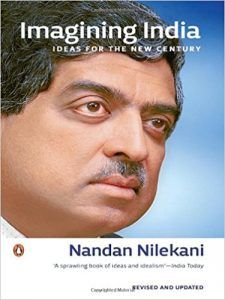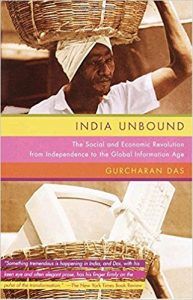
Book Summary: Breakout Nations by Ruchir Sharma
The book provides a nice summary of economic events of the recent past (~50 years) and builds upon the case for the coming 10 years.

The book provides a nice summary of economic events of the recent past (~50 years) and builds upon the case for the coming 10 years.
The first episode of Aamir Khan’s show Satyamev jayate raised the issue of female foeticide in Rajasthan. While the show asked for stringent laws, it missed a few major reasons behind the same.

The book presents a generalists view of post-independent India. Unlike India Unbound, this book focuses primarily on post-independent India and takes a more pragmatic approach towards understanding the problems of contemporary India. The best parts of the book are the interesting contradictions that the nation went through - love/hate relationship with the English language, fear of technology, and neglected urban development.
Internet, which initially started as a DARPA experiment is [still] under the indirect control of USA government through ICANN despite several objections from Europe as well as IBSA. This worked when most users were from the western world with the notable exception of China and few minor quirks. But in the past few decades, not only the governments around the world are putting more controls but also the internet users (as well as enterprises) are fighting back against US control. In this blog post, I will describe the main threats to the existence of (current form of) Internet.
This blog post is not about how good or bad the product technically is or how indigenous it is; it’s about a fundamental problem with tablets. It amazes me to see that even a journalist like T. Friedman missed it. Anyone who had ever used a tablet will tell you that even the best of the current-generation tablets are for consumption and not content generation.
(Following are a few notes from the talk on corruption by Harvard Professor and Janata Party leader, Dr. Subramanian Swamy held in bay area on July 29th 2011) Corruption - misuse of public office for personal gains Five impacts of corruption **

The book is divided primarily into three parts, the pre-independence era [focused on the British Raj including some stories of the Mughal period], the post-independence pre-liberalized era, and post-liberalized India. The author was born in 1943 in West Punjab, which is now under the occupation of Pakistan. The author narrates his personal experiences of the economic conditions of India from 1947-2001.
I decided to explore the trend of the past decade to see what the data says about the career preferences of IIT graduates.
The post is written in honor of Sh. Hari Prasad, the winner of EFF Pioneer Award 2010
This article illustrates some examples of how the Indian government deals with (Information) Technology. Some of these projects are unheard of while some generated unnecessary hype.